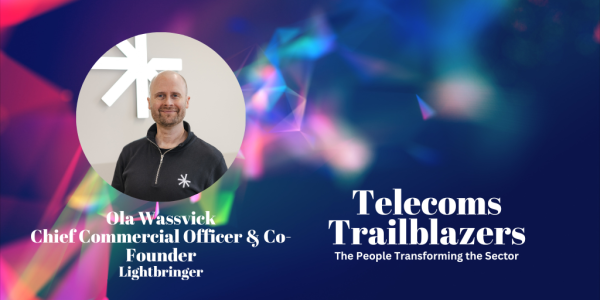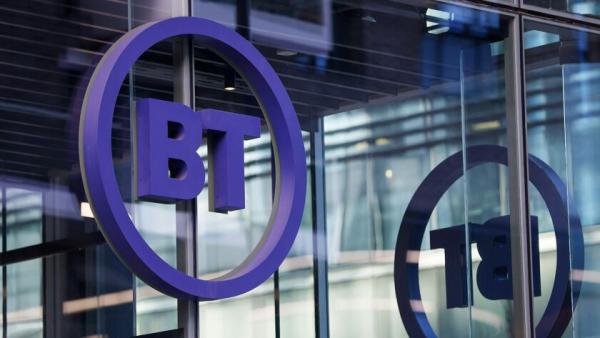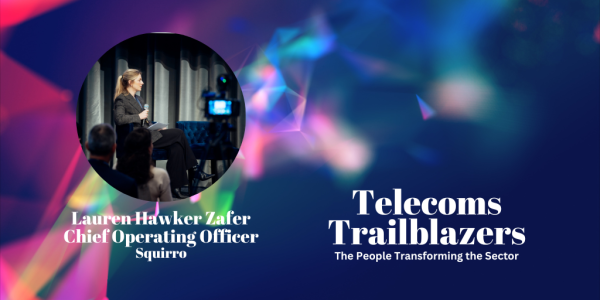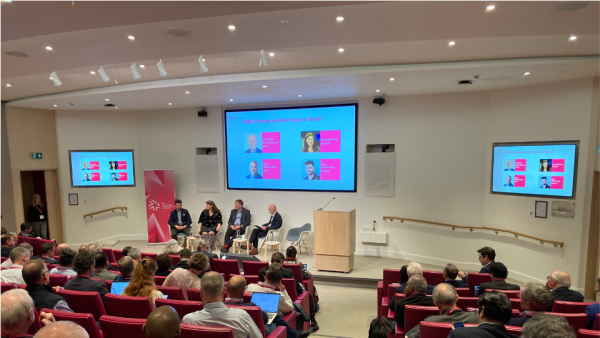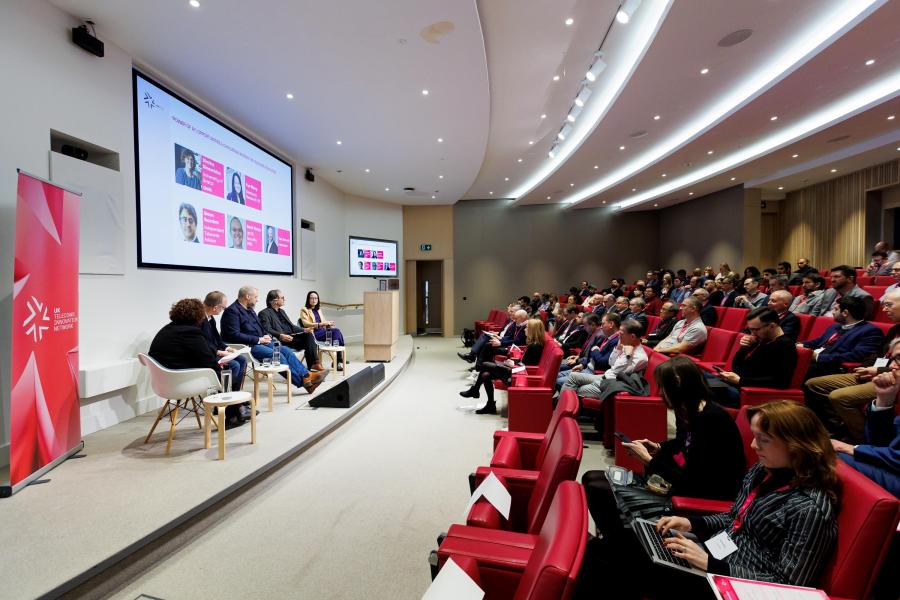
In London, on 1st February 2024, UKTIN’s AI Expert Working Group unveiled the findings of its research, including the current and emerging trends of Artificial Intelligence (AI) for Telecoms, a detailed analysis of selected key topics, and a review of forward-looking opportunities and challenges on potential technological, business, and societal transformations that AI would bring to the telco industry.
With AI tipped as the hot topic for MWC 2024, the conference was an opportunity to join colleagues in learning about the latest research and innovations, and the impact of integrating new developments across the telecoms ecosystem ahead of expected announcements and conversations in Barcelona.
AI is disrupting industry on a broad scale and telecoms is no exception, stimulating innovation throughout the network. To build on the UK’s already formidable strengths in this domain and identify important emerging challenges and opportunities, UKTIN brought together a group of experts to consider key evolutions of AI across telecoms and address a range of key issues and questions.
The role of UKTIN
Dritan Kaleshi, UKTIN Lead for Future Telecoms Capabilities, kicked off the day, by explaining how the expert working groups convened by UKTIN are playing an important role in the UK ecosystem. “UKTIN has created a structure that gets the community views into the government and the rest of the ecosystem, something that hasn’t existed for the past 30 years. I’m delighted that we have been able to achieve our objectives. I am immensely grateful, and in awe, of the contribution of the expert working groups.”
The latest research from UKTIN’s AI Expert Working Group
“Over eight months, we have had lots of conversations, resulting in a 77-page report”, said Yue Wang, Chair of the AI Expert Working Group.
“Nobody can predict the future. When it comes to AI, it's hard not to have a debate. What role does AI play in telcos? Well, I think AI is the foundation for telecom transformation. We have seen reduced revenue. Telco desperately needs a new path, a chance to improve efficiency and expand to new revenue streams. This is a Telco-to-Techco journey. This is a chance to build a better-connected future for various sectors, the economy and society.”
Panel session: ‘Power of AI”
Chaired by Professor Dimitra Simeonidou, Director of Smart Internet Lab, University of Bristol, and UKTIN Lead for UK Research Capability, experts discussed the opportunities and challenges across the telecoms ecosystem
Simon Saunders, Independent Telecoms Advisor, said: “I do think wireless networking among network domains has a particular need of AI and opportunity. All telecom networks are complex. AI only adds to this. Without AI, we have successfully built reasonably efficient networks, but only reasonably efficient. AI offers the opportunity to maximise that efficiency.”
David Happy, Chair, UKTIN Security EWG added: “For me and the working group I manage, our problem is AI. We can see the enormous opportunities that it can bring but have concerns. If AI goes wrong, it could be catastrophic. Trying to get the balance right is the issue. At the time where we are trying to run a policy in the UK, it can be difficult to strike that balance between costs and regulation.”
Tom Bennett, CTO, Freshwave said: There are themes of commercial complexity too. If I am a customer, I want an assured network management service. How do we do this when people own different parts? When there are multiple providers? I see the benefits of technical and secure complexity. But between these different authorities, who has the power? I’m looking for AI to be able to see when something is going wrong and stop it - but the changes have to be authorised.”
Wang concluded: “Is the industry ready to embrace AI? Yes and no. Five years ago there were a lot of questions. While we have made a lot of progress, the issues we discussed five years ago are still here today. We may be embracing AI but we need to tackle the fundamental challenges. It is also crucial that we integrate AI into businesses. It’s not a band-aid to be applied here and there. The key phrase is ‘Native AI’”.
Panel: Wireless Networking and AI
Chaired by Saunders, panellists from the UKTIN Wireless Networking Expert Working Group discussed the spotlight on the latest R&D&I, discussing the aspirations for AI
Doug Pulley, Independent Advisor, said: “There is a lot of talk about native AI, and there tends to be a focus on Generative AI. They are great hammers but not every problem is a nail. However, 3GPP is a good starting point. We are seeing where AI might go, and where certain little pieces may improve. But let's make sure we avoid a 3G moment. We need to embed AI at the start, not halfway through. Suddenly we seem to be in a situation where there is a disconnect between the cycle time of 3GPP and AI. ”
Lorcan Burke, Director, EMEA Service Provider and Edge, Broadcom continued: “Understanding where you’re going to put digital assets is important. If we can do a better job of capacity planning and forecasting, giving people the tools, we will end up with better physical assets. For better outcomes, we need a map of the network and be able to distribute these functions in a particular way. To do this, I think we need an injection of younger people.”
Paul Patras, Co-founder & CEO, of NetAI and Associate Professor, at the University of Edinburgh said: “AI creates an opportunity to manage developments. Cost-effectively solving problems can be difficult; there is a risk of over-provisioning. However, if we can understand issues ahead of time, and anticipate demand for a resource and application, with intervention, AI will be a game-changer. But people need to talk and be open to collaboration. We will not see mass deployment until 2030, so let's solve the problems we have right now.”
Chris Murphy, Regional CTO, EMEA, VIAVI Solutions commented: “There is complexity in the network. We are going to have to grapple with that. This is a challenge that AI will hopefully meet. When you can ask those questions in a safe environment, that offers possibilities to break out of that. The more we can model our networks, in which AI can play a role, the more doors will open. AI is not just about coming up with answers but checking them as well. But I think we need to start thinking more holistically, where the lines blur between delivering the connectivity and the service.”
The Skills Landscape in Telecoms
Professor Julie A. McCann, Vice Dean of Research at Imperial College, kicked things off with a clear call to arms: “It’s important to get trainees and grads in. The government knows this. We all know this. The UK is at the forefront of AI. The community has received a lot of funding to ensure we build some of these skills. We are in a strong position to harness the power of AI. Telcos should be approaching universities with their beautiful, wicked problems!”
She continued: “Excitingly, UKTIN is facilitating entrepreneurship, employment, vocational training and educational attainment challenges through a National Telecoms Entrepreneurship, Employment and Training Programme.”
Lesley Holt, Director of Acceleration and Adoption, WM5G, said: “There is a traditional view of education, which needs to change. We know that 47% of companies understand the need for an AI strategy. The time is here and now. But there is an element of hype and misinformation. Technology has created more jobs, not less; they are just different jobs. We can’t predict the future but we can look at what skills are needed. There also needs to be a greater awareness of the telecom sector. This is a chance to show how exciting the sector can be. We’ve got to bring the people in. We must home in on the art of the possible.”
McCann added: “There is nothing stopping people from doing interdisciplinary courses, it’s just about the universities running them. Life-long learning is a chance to upskill. However, we shouldn’t be doing this in isolation. Companies need to get together: for example, why can’t a comms worker learn AI? I think telecoms need to rebrand and be willing to bring their scary problems to academia.”
Impact of AI and a smart national infrastructure on the UK economy
David Pollington, Head of Research at Bloc Ventures explained that AI has risen quickly to become the next technology platform, showing the greatest growth in Deep Tech investment.
He continued: “AI will affect almost 40% of jobs around the world, replacing some and complementing others... and affect as many as 60% in advanced economies. AI will also play a key role in helping future networks become ‘smart’, albeit facing several challenges, with the lack of data availability being one of the biggest constraints.”
Despite this, Pollington emphasised that the “UK is already leading in AI investment”, and “should be well-placed to deliver a smart national infrastructure and reap the rewards of a connected society.”
The event closed with remarks from Simeonidou, who said it had been a “fantastic and productive day”.
There was also a chance for attendees to network and see demonstrations from exhibitors: Accelleran, a disruptor in the Open RAN ecosystem, developing 5G RAN software components; bandarlog.dev, bringing AI into the core; Project REASON, enabling architectures and solutions for open networks; and Towards AI, a consortium that brings together Metaswitch, Intel R&D, Capgemini and the University of Edinburgh.


